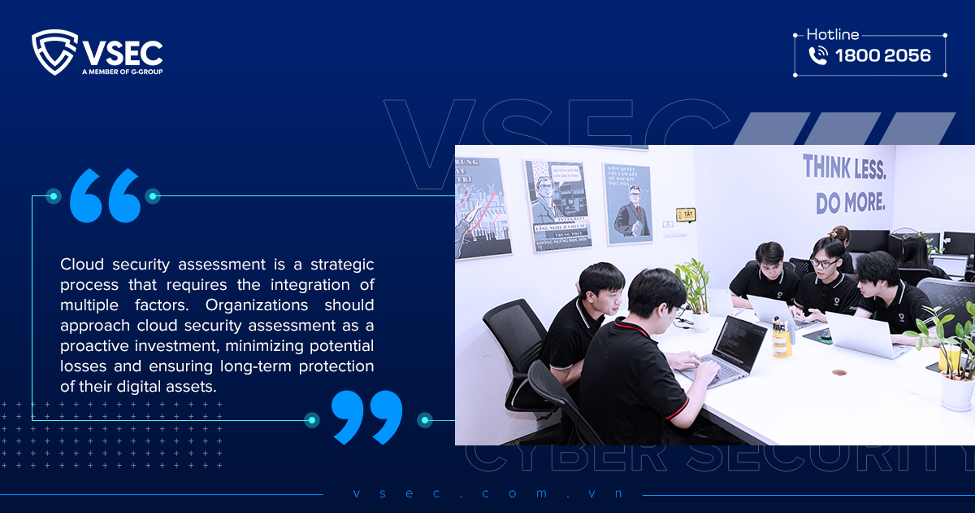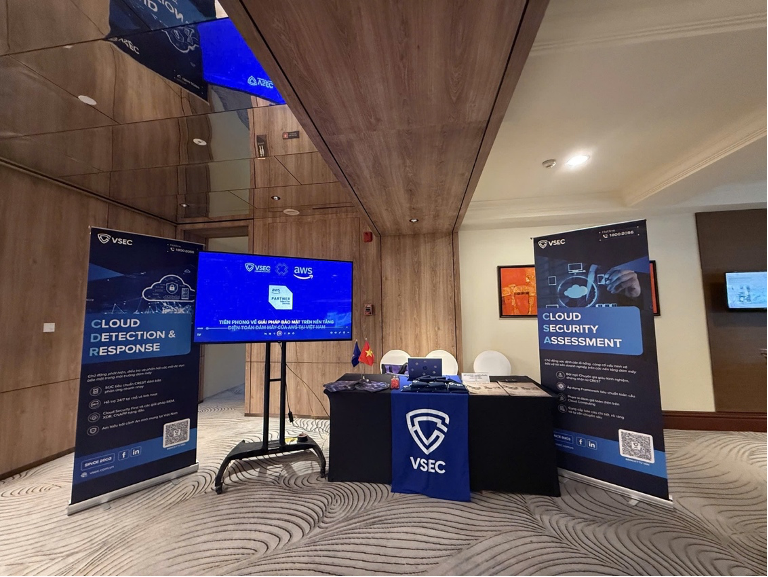According to Vietnamese Security Network (VSEC)'s 2024 Cybersecurity Situation Summary Report, 27% of organizations recorded cloud security incidents in 2024, with over 80% of cloud vulnerabilities exploited due to misconfigurations or lack of monitoring. Despite these risks, cloud computing remains an essential technology for businesses amid rapid digitalization. The question for many organizations is how cloud computing platform security assessment solutions can help protect businesses and minimize the risk of attacks from the outset.
Cloud security accompanies digital transformation
The Security Market Report 2024–2029 from Mordor Intelligence notes that the Asia-Pacific region plays a pivotal role in the global cybersecurity market, driven by rapid digital transformation and the adoption of advanced technologies across multiple sectors. In Vietnam, cloud-based solutions are gaining a significant foothold, accounting for 56.5% of the cybersecurity market share in 2024.
Despite findings from an Oracle survey showing that 60% of CxOs rate security as the top benefit of cloud computing - ahead of cost savings, scalability, ease of maintenance, and rapid deployment - businesses migrating systems to platforms such as AWS, Azure, and Google Cloud still face concerns about compliance with laws and organizational regulations. Confusion over the current Shared Responsibility Model is also leading to security gaps, as some organizations remain unclear about the division of responsibilities between enterprises and cloud service providers (CSPs).
The lack of cloud expertise, combined with the complexity of hybrid or multi-cloud deployments, has made monitoring and incident response increasingly difficult. In this context, hiring leading providers of cloud computing security services is becoming a strategic choice for organizations.

When to conduct cloud security assessments
From VSEC experts’ perspective, businesses using cloud environments should consider conducting security assessments at three key stages: before cloud deployment, during operations, and after incidents occur. This approach helps organizations detect risks early and build a safe, solid operational foundation.
In the pre-deployment stage, a comprehensive review of current systems can reveal potential vulnerabilities and support building architectures under “secure-by-design” principles. This not only prevents incidents from the start but also ensures the right choice of provider and the establishment of SLAs with clear security commitments.
During operations, as cloud environments constantly evolve, new vulnerabilities or misconfigurations may emerge. Periodic assessments, combined with continuous monitoring, allow early detection and fast resolution of security issues — an important step for small businesses with limited resources.
After serious incidents such as cyberattacks or data breaches, assessments help identify root causes, guide thorough remediation, and prevent recurrence.
These three stages represent critical transition points in the cloud adoption journey. Proactively assessing security at the right times can reduce risks, lower remediation costs, and strengthen overall protection.
Key notes for effective cloud security assessment
In an increasingly complex cyber landscape, accurate and complete security assessments are considered essential for protecting digital assets.
As hybrid and multi-cloud models become more popular among Vietnamese businesses, risks can arise not only from technical flaws but also operational gaps. The combination of on-premises and cloud systems can create “half-closed, half-open” zones — weak points that attackers may exploit for privilege escalation or to take advantage of existing vulnerabilities. Experts recommend that using VPN, two-way encryption, and establishing zero-trust policies should be considered mandatory requirements rather than just recommendations.
For small and medium-sized enterprises (SMEs) facing cost pressures, VSEC suggests a “focused–priority” strategy, prioritizing assessments of core digital assets such as financial systems, customer data, or payment platforms. Larger organizations or those in sensitive sectors such as banking, fintech, healthcare, or e-commerce require a comprehensive approach that covers both infrastructure and applications.
A notable point highlighted by VSEC representatives is: “Do not rely entirely on automated tools.” While automated methods offer speed and continuous monitoring, they may miss errors in permission allocation or complex authentication mechanisms. Manual assessments by experts remain key to uncovering sophisticated vulnerabilities. Combining both automated and manual assessments, VSEC says, improves accuracy and ensures that no weak points escape detection.
As an official AWS Select Tier Service Partner pioneering cloud security solutions on the AWS platform in Vietnam, a VSEC representative affirms: “Becoming an AWS Select Tier Services Partner is an important milestone, affirming VSEC's capabilities and commitment to providing comprehensive and specialized cloud security solutions that help organizations – especially in finance, education, and energy sectors. Thanks to effective security deployment, continuous monitoring and quick response to all incidents, we bring peace of mind to businesses in their digital transformation journey.”










 Google translate
Google translate